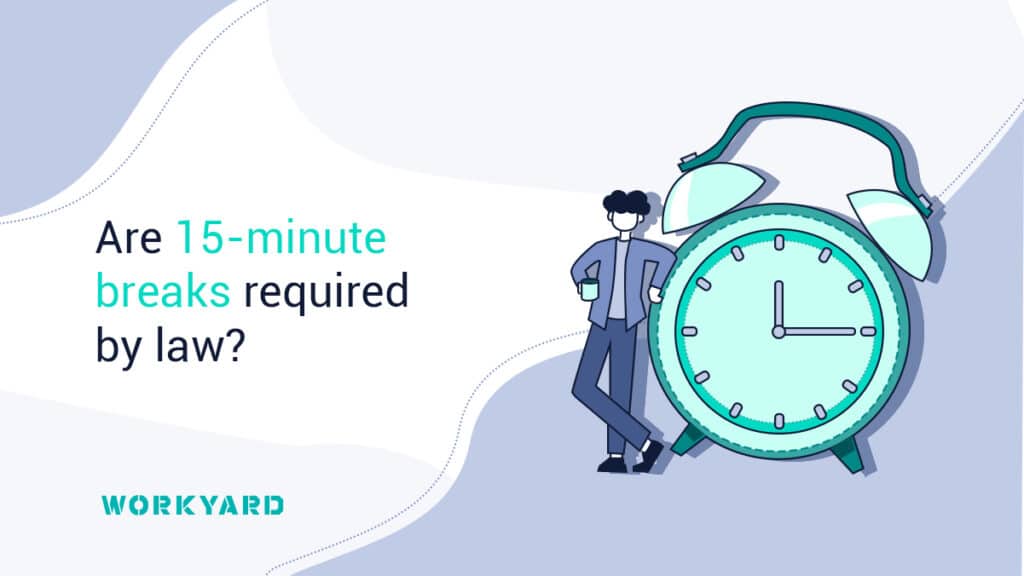This question is about California Labor Laws and Tracking Breaks.
Are 15-Minute Breaks Required by Law?
However, some states have implemented ordinances regarding break requirements. For example, in California, non-exempt employees who work more than 3.5 hours a day are entitled to one 10-minute rest break. Similarly, in Oregon, employees who work more than 6 hours a day are entitled to a 30-minute meal break.
Although breaks are not required, employers may still choose to offer them as a benefit to their employees. Employers may also provide breaks to comply with state or local laws or to meet industry standards. Some employers promote time away from your desk to improve employee morale, increase productivity, or reduce stress.
Breaks have a positive impact on an employee’s well-being, mental health, and overall job satisfaction. Taking a break from work, even if it’s just for a few minutes, can help employees recharge, leading to increased productivity and better-quality work. It is also a good way for employees to care for themselves and maintain their physical health by stretching, getting fresh air, or grabbing lunch.
If an employer does choose to offer breaks, they must comply with some requirements, such as paying employees for the time spent away if less than 20 minutes. Employers must also ensure that employees are free to take their breaks without interference or retaliation. Employers must provide a safe and comfortable environment for employees with access to restrooms and drinking water.
While there is no federal law requiring employers to provide 15-minute breaks, some states have their break requirements. Employers may choose to offer breaks as a benefit to their employees, and if they do, they must comply with certain requirements. It is always a good idea to check the laws in your state to determine if you are entitled to breaks and what your rights are as an employee.
